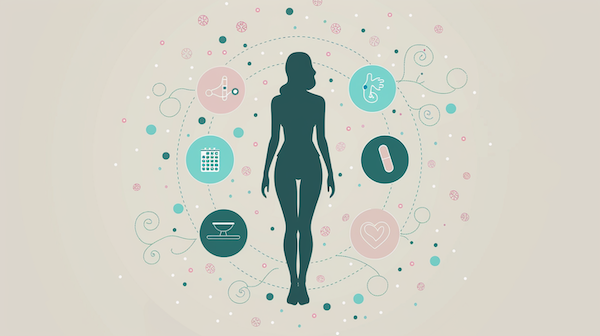Butter and PCOS as a Superfood for PCOS
Butter is a dairy product made from churning cream or milk to separate the butterfat from the buttermilk. It is commonly used in cooking, baking, and as a spread. When it comes to PCOS management, the status of butter as a "bad" or "good" food depends on various factors, including individual health goals and portion control.
Butter is high in saturated fats, which can raise cholesterol levels and increase the risk of heart disease when consumed in excess. Individuals with PCOS, who are already at a higher risk of developing cardiovascular complications, may benefit from reducing their intake of saturated fats to support heart health.
However, butter also contains essential fat-soluble vitamins, such as vitamins A, D, E, and K, which play crucial roles in various bodily functions, including immune function, bone health, and blood clotting. Additionally, butter adds flavor and richness to dishes, making it a versatile ingredient in cooking and baking.
When incorporating butter into a PCOS-friendly diet, moderation is key. Opting for small amounts of high-quality butter and balancing it with other sources of healthy fats, such as olive oil, avocados, and nuts, can help individuals manage their saturated fat intake while still enjoying the flavor and nutritional benefits of butter.
How to Make Healthier Choices
Here are some tips for making healthier choices when it comes to butter:
- Choose High-Quality Butter: Opt for grass-fed or organic butter whenever possible, as they may contain higher levels of beneficial nutrients.
- Control Portion Sizes: Use butter sparingly and be mindful of portion sizes to avoid excessive saturated fat intake.
- Balance with Other Fats: Incorporate a variety of healthy fats into your diet, such as olive oil, avocado, nuts, and seeds, to diversify nutrient intake and support overall health.
- Consider Alternatives: Explore alternative spreads and cooking oils, such as olive oil-based spreads or avocado oil, to reduce saturated fat intake while still enjoying similar flavors and textures.
- Focus on Whole Foods: Choose whole, minimally processed foods over heavily processed options that may contain unhealthy fats and additives.
By making informed choices and practicing moderation, individuals with PCOS can incorporate butter into their diet while supporting their overall health and well-being.
